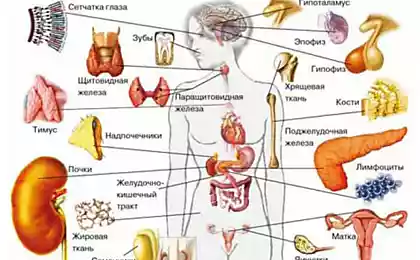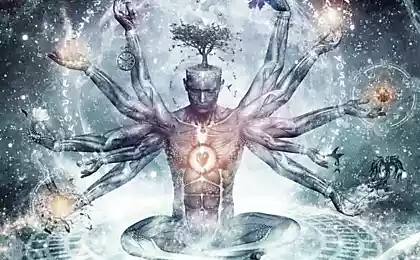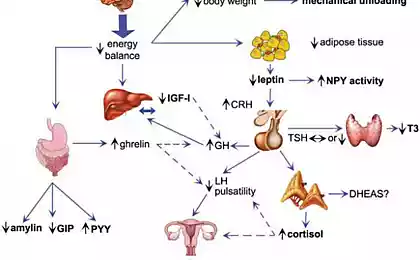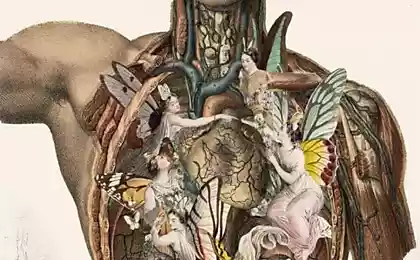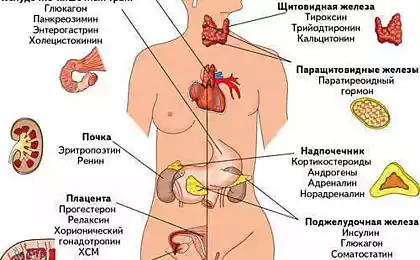501
You will be surprised! How Your nutrition affects hormonal balance
Hormonal balance is the balance of hormones in the body. From the concentration of certain types of hormones affects our health and General physical condition of the body. Tearfulness, hysteria, excessive impulsivity, and obsessive fears about everything – clear signs of an imbalance of the hormones. Changes or hormonal background of an organism is expressed in reducing the content of hormones in the blood and can provoke serious diseases.
In 50-60 years of the twentieth century science has established that not only the pancreas, but the gut is also an endocrine organ. One of the achievements of academician Ugolev was that he found that the gastrointestinal tract is the largest endocrine organ. If earlier it was thought that the digestive tract produces only hormones to control yourself, for example gastrin, Ugolev showed that it produces a whole range of hormones that regulate activities in the body.

The endocrine cells of the gastrointestinal tract produce a hormones that is typical of the hypothalamus and pituitary gland and pituitary cells – gastrin. Thus, according to some of the hormonal effects of the hypothalamic-pituitary and gastrointestinal system were related. Even such hormones as endorphins and enkephalins, the synthesis of which was previously attributed exclusively to the brain, are produced in the intestine. In particular, these morphine hormones are produced in the infant by a protein of mother's milk and in adults with a protein of wheat. Let me remind you that these are the hormones that cause pain, the feeling of causeless joy, happiness, euphoria. Also, the gut produces 95% of serotonin, the lack of which leads to depression and migraines.
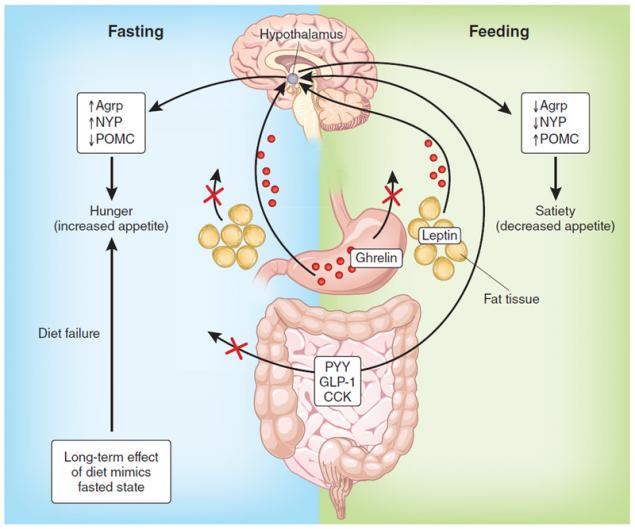
Now the most important thing – the regulation of the formation of hormones in the gastrointestinal tract differs from that in other endocrine systems, the secretion of hormones depends not so much on the condition of the body, but from direct interaction of food components with the intestinal wall, and some hormones come directly from food or synthesized in the intestine. I want to draw attention to the importance of this conclusion! Hormones, which affects the state of our body, our mood and health depends on the food you food.
The flow of hormones, carried out with a meal, not matter for the theory of balanced nutrition, no modern medicine. Most doctors don't know that removing part of the digestive tract leads to severe hormonal disorders and the emergence of new diseases. Ugolev gives an example in which partial removal of the duodenum led to a change in the functioning of the adrenal cortex, hypothalamus, pituitary and changes in the structure of the thyroid gland.
So everything in our body is interconnected and nothing superfluous. And food is one of the most important stimulants of all systems.published
P. S. And remember, only by changing their consumption — together we change the world! ©
Join us in Facebook , Vkontakte, Odnoklassniki
Source: vk.com/superaura1?w=wall-73647518_3814
In 50-60 years of the twentieth century science has established that not only the pancreas, but the gut is also an endocrine organ. One of the achievements of academician Ugolev was that he found that the gastrointestinal tract is the largest endocrine organ. If earlier it was thought that the digestive tract produces only hormones to control yourself, for example gastrin, Ugolev showed that it produces a whole range of hormones that regulate activities in the body.

The endocrine cells of the gastrointestinal tract produce a hormones that is typical of the hypothalamus and pituitary gland and pituitary cells – gastrin. Thus, according to some of the hormonal effects of the hypothalamic-pituitary and gastrointestinal system were related. Even such hormones as endorphins and enkephalins, the synthesis of which was previously attributed exclusively to the brain, are produced in the intestine. In particular, these morphine hormones are produced in the infant by a protein of mother's milk and in adults with a protein of wheat. Let me remind you that these are the hormones that cause pain, the feeling of causeless joy, happiness, euphoria. Also, the gut produces 95% of serotonin, the lack of which leads to depression and migraines.

Now the most important thing – the regulation of the formation of hormones in the gastrointestinal tract differs from that in other endocrine systems, the secretion of hormones depends not so much on the condition of the body, but from direct interaction of food components with the intestinal wall, and some hormones come directly from food or synthesized in the intestine. I want to draw attention to the importance of this conclusion! Hormones, which affects the state of our body, our mood and health depends on the food you food.
The flow of hormones, carried out with a meal, not matter for the theory of balanced nutrition, no modern medicine. Most doctors don't know that removing part of the digestive tract leads to severe hormonal disorders and the emergence of new diseases. Ugolev gives an example in which partial removal of the duodenum led to a change in the functioning of the adrenal cortex, hypothalamus, pituitary and changes in the structure of the thyroid gland.
So everything in our body is interconnected and nothing superfluous. And food is one of the most important stimulants of all systems.published
P. S. And remember, only by changing their consumption — together we change the world! ©
Join us in Facebook , Vkontakte, Odnoklassniki
Source: vk.com/superaura1?w=wall-73647518_3814
2100 km on a single tank: and it is now possible
Crop rotation in the summer garden: smart cultivates the crop, and wise land


